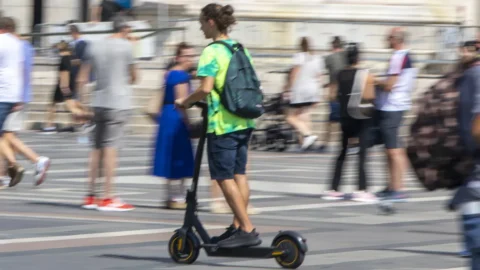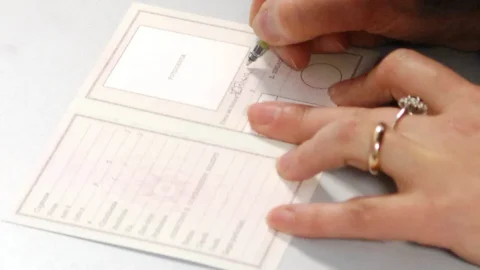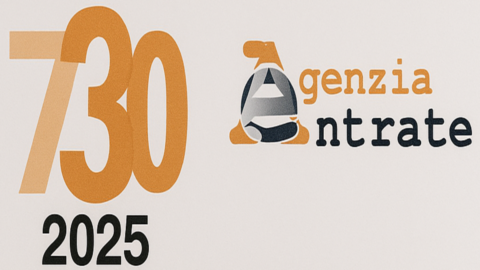Tutto quello che è disponibile sul Web è liberamente scaricabile è utilizzabile?
No. Le opere disponibili on-line sono di regola protette dal diritto d’autore e, ove siano liberamente utilizzabili, ciò avviene per consenso degli aventi diritto ovvero nei casi previsti dalla legge.
In quali casi i file rinvenuti sul web possono essere utilizzati?
L’utilizzabilità dei file rinvenuti on-line dipende dal tipo di uso che se ne intende fare. Se l’uso è a mero utilizzo per scopo personale esso è consentito nei limiti previsti dalla Legge sul Diritto d’Autore (artt. 65-71-decies Legge diritto d’Autore). Non è ammesso l’utilizzo per fini commerciali di file reperiti on-line in mancanza del consenso dell’avente diritto.
È lecito installare un programma di file sharing sul nostro computer? Qual è l’uso legittimo del file sharing?
È lecito installare un programma di file sharing a condizione che tali piattaforme assolvano al pagamento dei diritti d’autore. La Corte Europea di Giustizia, nel caso relativo alla piattaforma di file sharing “Pirate Bay” ha sancito la responsabilità degli amministratori del programma per la violazione dei diritti d’autore. Secondo la Corte la piattaforma, dando accesso agli utenti ad opere pubblicate in assenza dell’autorizzazione dei titolari dei diritti e consentendone l’estrazione di copie, ha violato la normativa sul diritto d’autore. Inoltre, la gestione della piattaforma, realizzata al fine di lucro ed in ragione dei proventi ottenuti tramite gli annunci pubblicitari, genera un profitto indebito a favore di un soggetto non legittimato a sfruttare economicamente le opere dell’ingegno altrui.
Che cosa è comunque vietato?
È vietato lo sfruttamento economico di opere altrui, in assenza di un apposito accordo con l’autore o altri aventi diritto (ad esempio l’editore).
Posso fare una copia personale di un supporto che contiene un prodotto coperto diritto d’autore (film, musica o quant’altro)?
La legge sul diritto d’autore ammette la possibilità di effettuare una copia privata per uso personale di un’opera coperta dal diritto d’autore (art. 71-sexies). Ciò, a condizione che non vi sia contrasto con lo sfruttamento normale dell’opera e non si arrechi pregiudizio ai titolari dei diritti.
Posso cedere l’originale conservando il supporto con la copia? Posso consentire a qualcun altro l’uso della copia?
È possibile cedere l’originale e trattenere per uso privato una copia. La copia può essere anche utilizzata da altri purché a scopo personale. Non è consentita la cessione della copia a titolo oneroso.
A quali procedimenti o sanzioni posso incorrere se utilizzo illecitamente del materiale protetto da diritto d’autore?
Nel caso di uso illecito del materiale protetto si può incorrere sia in procedimenti civili che penali (artt. 156- 174-quinquies Legge diritto d’Autore).
Qualcuno dall’esterno può controllare l’uso che faccio del Web, in particolare delle piattaforme di file sharing, senza avvertirmi? Il mio provider Internet può consentire agli inquirenti di indagare l’uso della mia connessione senza avvertirmi?
Gli inquirenti possono, in fase di indagine preliminare, avere accesso alle piattaforme informatiche personali per fini investigativi.
A quali condizioni e con quali regole posso diffondere musica o video protetti dal diritto d’autore nel mio ufficio o nel mio esercizio commerciale? (esempi: la musica di sottofondo dal dentista, i video con i televisori in vendita in un negozio di elettrodomestici).
Le regole da seguire per una corretta diffusione di musica o video variano a seconda che si tratti di locali aperti al pubblico o meno. L’ufficio è un luogo privato e conseguentemente è possibile riprodurre liberamente musica per scopi personali. Viceversa, nel caso di un esercizio commerciale (es. negozi di abbigliamento, supermercati), è possibile utilizzare musica come sottofondo munendosi di un’apposita licenza Siae, sottoscrivendo un abbonamento forfettario annuale o periodico o con l’organismo di gestione Liberi Editori Autori (Soundreef).
In caso di accertata violazione delle regole da parte mia in quali sanzioni posso incorrere?
In caso di violazione del diritto d’autore, si può incorrere in sanzioni civili ed essere condannati a risarcire il danno subito dall’autore. Si può altresì esser puniti penalmente con la multa e, nei casi più gravi, con la reclusione fino a un anno (artt. 156- 174-quinquies Legge diritto d’Autore). Ove il reato sia commesso nell’interesse o a vantaggio di un ente sono previste sanzioni anche nei confronti di quest’ultimo ai sensi del D. Lgs. 231/2001.
In che modo può essere data notizia procedimento a mio carico?
La notizia di procedimento a proprio carico è comunicata alla persona sottoposta alle indagini ai sensi dell’art. 161 del Codice di procedura penale. Tuttavia è possibile averne conoscenza mediante una richiesta formulata in base all’art. 335 c.p.p. alla Procura della Repubblica presso il Tribunale.
Gli inquirenti possono perquisire la mia abitazione o il mio ufficio senza alcun preavviso alla ricerca di copie illecite di materiale protetto da diritto d’autore?
Quando vi è fondato motivo di ritenere che il corpo del reato o cose pertinenti al reato si trovino in un determinato luogo può essere disposta la perquisizione di un locale (art. 247 c.p.p. e ss.). Nell’atto di iniziare le operazioni una copia del decreto motivato di perquisizione del locale è consegnata all’imputato o a chi abbia la disponibilità del luogo. Le cose rinvenute all’esito della perquisizione possono essere sequestrate (art. 252 c.p.p.). La perquisizione può avvenire su richiesta del Pubblico Ministero ovvero su iniziativa della polizia giudiziaria (ex art. 352 c.p.p).
È possibile sequestrare il materiale rinvenuto all’esito della perquisizione ed in base a quale titolo?
La legge prevede la possibilità per l’autorità giudiziaria di disporre con decreto motivato il sequestro del corpo del reato e le cose pertinenti al reato necessarie per l’accertamento dei fatti (art. 253 e successivi).
Cosa devo fare se sono oggetto di un procedimento?
È consigliabile rivolgersi ad un legale per la piena conoscenza dei propri diritti e la migliore assistenza professionale.





